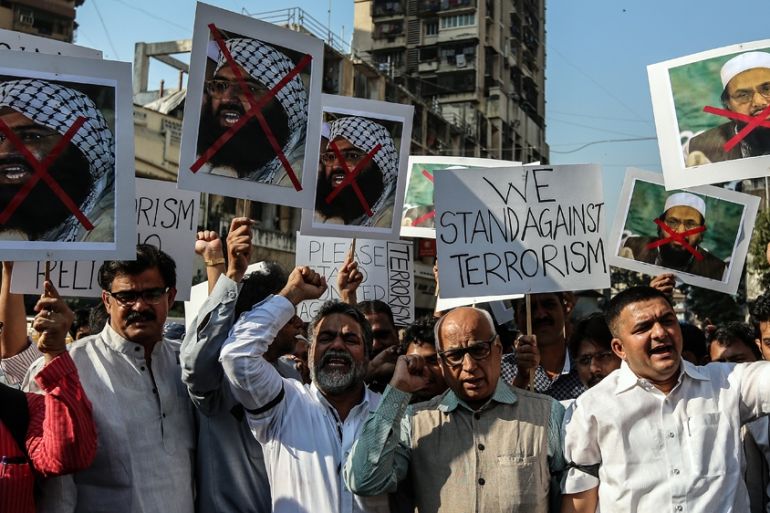Profile: What is Jaish-e-Muhammad?
Pakistan-based armed group headed by Masood Azhar has been implicated in a series of suicide attacks in Kashmir.

Formed in 2000, Jaish-e-Muhammad (JeM or Army of Muhammad) is a Pakistan-based armed group that aims to undermine and overthrow Indian control over Indian-administered Kashmir through attacks on security and government targets.
The group was founded by Masood Azhar, who previously fought under the banner of Harkat-ul-Mujahideen and has been linked to al-Qaeda.
Azhar founded JeM after he was released from Indian custody in 1999, in exchange for more than 150 hostages held on an Indian Airlines flight that had been hijacked and diverted to Kandahar in Afghanistan.
|
|
Azhar is said to have formed JeM with the support of then-al-Qaeda chief Osama bin Laden and the Afghan Taliban, according to the United Nations.
The group is said to have actively supported the Afghan Taliban’s fight against US-led NATO forces since 2001.
JeM has carried out several high-profile suicide and other attacks against Indian targets since its formation.
Notably, in 2001 it was implicated in attacks on the legislative assembly building in Indian-administered Kashmir and on the Indian parliament in New Delhi. More than 50 people were killed in the two attacks.
JeM outlawed in Pakistan
Azhar was arrested by Pakistani authorities for his alleged involvement in the parliament attack, but was released a year later after a court ruled authorities had presented inadequate evidence against him.
Pakistan outlawed the JeM as a “terrorist organisation” in 2002, prompting the group to target Pakistan, twice unsuccessfully attempting to assassinate then-Pakistani president Pervez Musharraf in 2003.
In 2016, Pakistan once again detained Azhar after India alleged JeM was responsible for an attack on an Indian airbase in the town of Pathankot, killing at least six people.
Later that year, JeM was linked to an attack on an Indian security forces base at Uri, killing 19 people.
In February 2019, JeM claimed responsibility for a suicide attack that killed 40 Indian soldiers in the Indian-administered Kashmir town of Pulwama, the worst such attack on Kashmiri soil.
A senior police officer, who works with counterinsurgency department of India-administered Kashmir, said in the last two years the armed group has suffered a setback in south Kashmir, such as Pulwama and Tral, because of counter-insurgency operations.
“JeM is not only on a revival mode by carrying out such high-value attacks, but it also nurtures pan India Islamist goals,” he said on condition of anonymity.
|
|
An official also told Al Jazeera there are 56 JeM fighters active in Kashmir.
“Foreign rebels belonging to JeM who have sneaked into Kashmir from Pakistan are mostly active in the northern parts. While 23 of them are local who are mostly from south Kashmir,” the official said.
Azhar’s current whereabouts remain unknown having not been formally charged by Pakistan with a crime nor making public appearances since his detention.
On May 1, 2019, the United Nations added to its list of “global terrorists” after China lifted its objections to the move.
Under the decision, Azhar will be subject to an assets freeze, global ban and arms embargo.
The sanctions committee accused hime of “participating in the financing, planning, facilitating, preparing, or perpetrating of acts or activities” carried out by JeM.
Additional reporting by Rifat Fareed from Srinagar